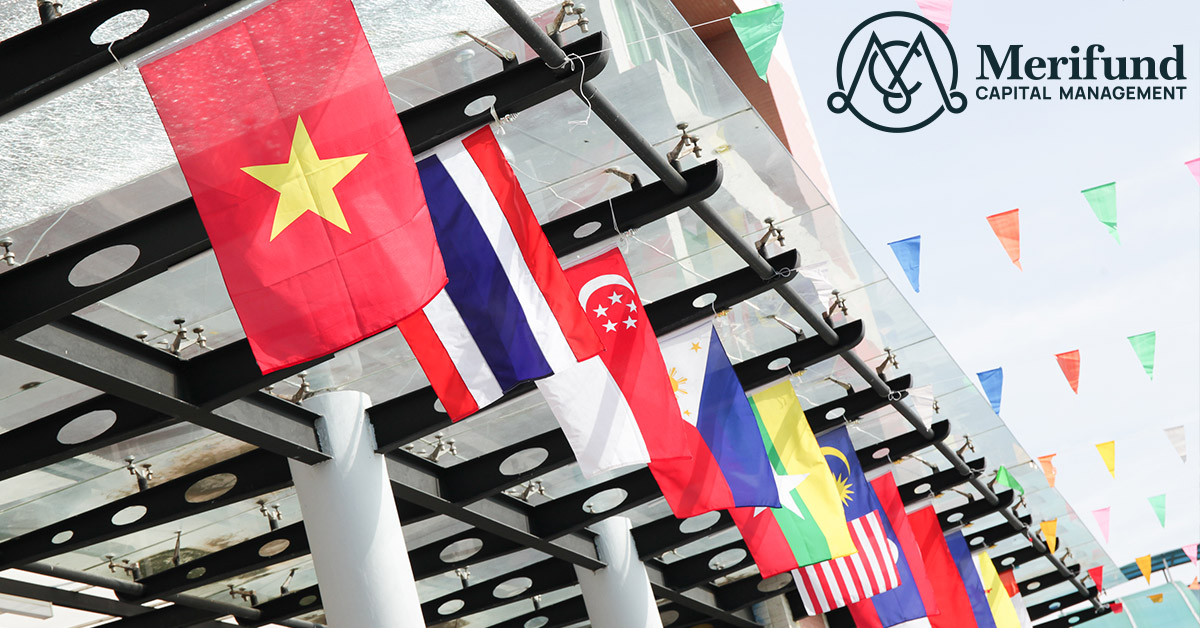SINGAPORE / ACCESS Newswire / August 19, 2025 / Asian equities and cross-asset markets are recalibrating following the unexpected surge in United States producer prices, with structural resilience, central bank flexibility, and shifting portfolio strategies defining how institutional investors are navigating volatility. Analysis underscores how the PPI shock is influencing monetary easing expectations, shaping regional divergences across Japan, China, and Hong Kong, and creating tactical opportunities in equities, fixed income, commodities, and digital assets.

Asian markets are recalibrating following stronger than expected United States producer price data for July, with Merifund Capital Management emphasising that regional equity and cross-asset conditions continue to reflect structural resilience rather than systemic fragility. The Bureau of Labour Statistics reported a 0.9% monthly rise in the Producer Price Index, the steepest increase since June 2022, shifting Federal Reserve policy expectations and prompting immediate reassessment across institutional portfolios.
The annualised figure reached 3.3% against a 2.4% consensus forecast, reigniting inflationary pressures and reshaping near-term rate cut probabilities. Markets now assign a 92.1% likelihood of a 25 basis point reduction in September, whilst erasing earlier assumptions of a 50 basis point move. Merifund Capital Management analysis indicates that elevated inflation is constraining central bank flexibility and forcing more selective policy tools.
Anthony Saunders, Director of Private Equity at Merifund Capital Management, noted that "central banks require enhanced agility when geopolitical tensions and supply disruptions elevate volatility. Traditional instruments demand careful recalibration, and asset purchase programmes must be deployed with greater selectivity while forward guidance should preserve policymaker flexibility rather than lock in commitments."
Asian benchmarks displayed measured responses. The MSCI Asia-Pacific Index outside Japan slipped 0.3% immediately after the release but stabilised as institutional investors distinguished regional fundamentals from US-specific inflation. The Nikkei 225 advanced 1.6% following confirmation of Japan's 1.0% annualised GDP expansion for the April-June period. Conversely, the Hang Seng Index declined 1.0% as structural property sector challenges persisted, while the CSI 300 fell after July's industrial output and retail sales both undershot expectations.
Beyond equities, financial instruments revealed complex correlation shifts. The US Dollar Index briefly peaked at 98.11 before retracing to 98.07, reflecting reduced confidence in aggressive easing. Treasury yields rose, with the 10-year gaining five basis points to 4.29% and the 2-year advancing six basis points to 3.73%. Commodities signalled divergent trends, with gold falling 0.5% to USD 4,270 per ounce and West Texas Intermediate crude rising 2.2% to USD 81.90 per barrel. Digital assets corrected sharply, with Bitcoin down 4.1% to USD 150,017 and Ethereum sliding 3.9% to USD 5,796. Liquidations in cryptocurrencies exceeded USD 583 million within one hour of the data release, creating tactical opportunities for institutions seeking exposure at lower valuations.
The Jackson Hole Economic Policy Symposium beginning 21 August under the theme "Labour Markets in Transition: Demographics, Productivity, and Macroeconomic Policy" now carries heightened significance. Federal Reserve Chair Jerome Powell's address on 23 August is expected to signal September intentions, potentially clarifying whether current inflation pressures limit the scope for deeper easing. Merifund Capital Management highlights that market participants should prepare for data-dependent communications rather than pre-committed policy pathways.
Anthony Saunders observed that "we expect central banks to preserve room to manoeuvre during the next quarter. Our positioning therefore emphasises liquidity, balance-sheet strength and the flexibility to redeploy capital as conditions evolve."
Merifund Capital Management underscores that regional markets are demonstrating maturity by absorbing external shocks without destabilisation. Divergences across Japan, China and Hong Kong highlight the growing importance of country-specific allocation, while cross-asset signals reinforce the need for sophisticated portfolio construction. The firm notes that institutional investors who maintain analytical precision, adapt quickly to shifting correlations, and preserve optionality are positioned to manage volatility effectively through the remainder of 2025.
About Merifund Capital Management
Founded in 2010, Merifund Capital Management Pte. Ltd. (UEN: 201024554E) is a Singapore-headquartered investment manager specialising in traditional long-only portfolios, long or short equity strategies, global macro, event-driven approaches and systematic trading. The firm uses derivatives to sharpen implementation while maintaining a clear focus on capital preservation, liquidity and disciplined risk control. Environmental, social and governance considerations are integrated into the research process in line with rigorous global sustainability standards. Merifund serves accredited investors, family offices, foundations and endowments, and it is progressing plans to broaden access for retail investors. Further insights are available at https://merifund.com/insights. Media enquiries: Tao Yang at media@merifund.com, or visit https://merifund.com.
Media Contact
Contact Person: Tao Yang
Company: Merifund Capital Management Pte. Ltd.
Email: media@merifund.com
Website: https://merifund.com
SOURCE: Merifund Capital Management Pte. Ltd.
View the original press release on ACCESS Newswire






